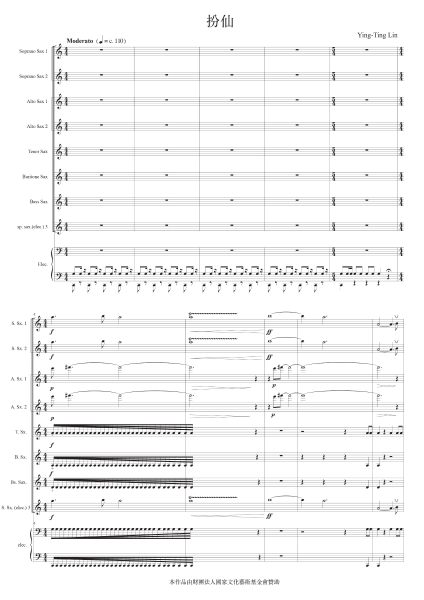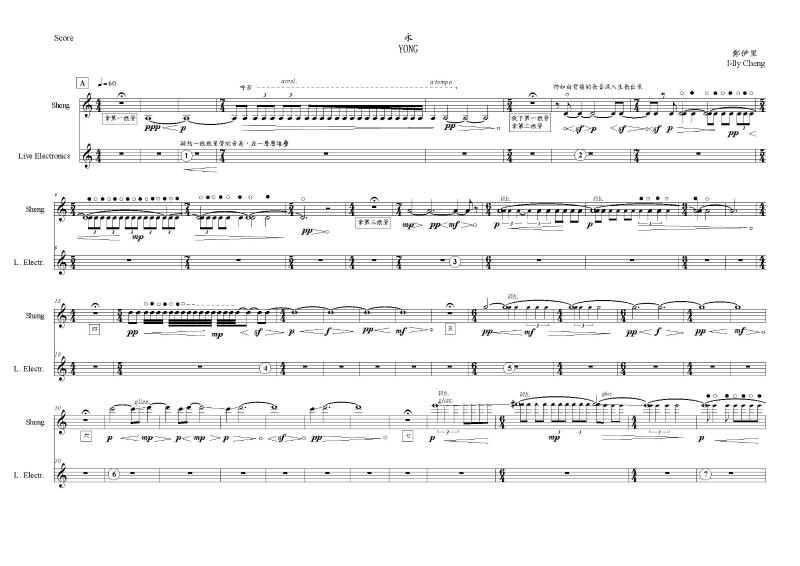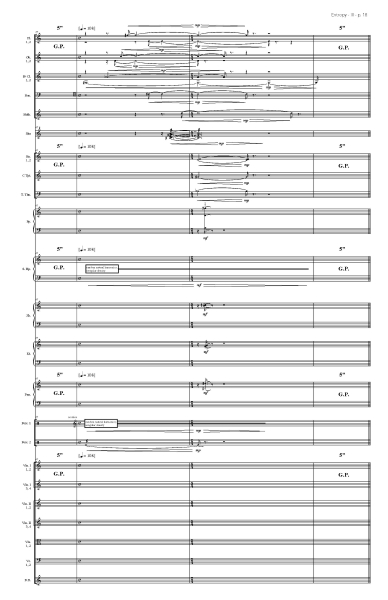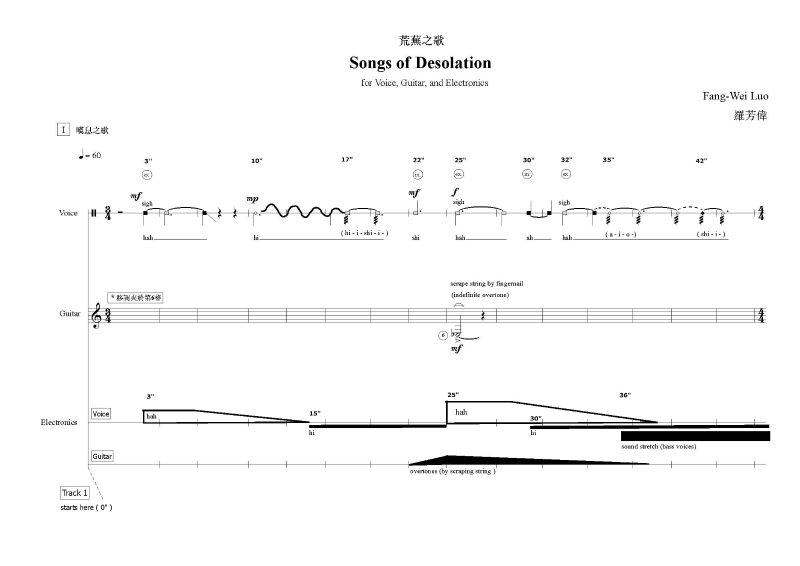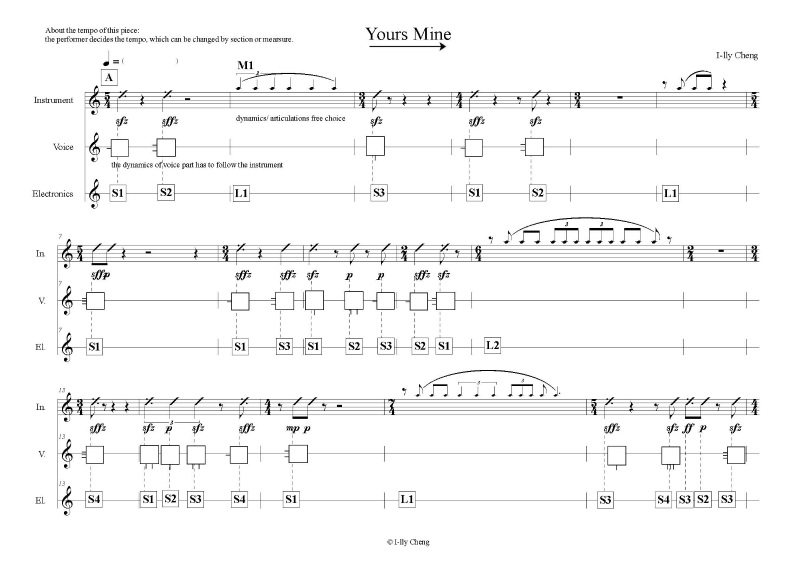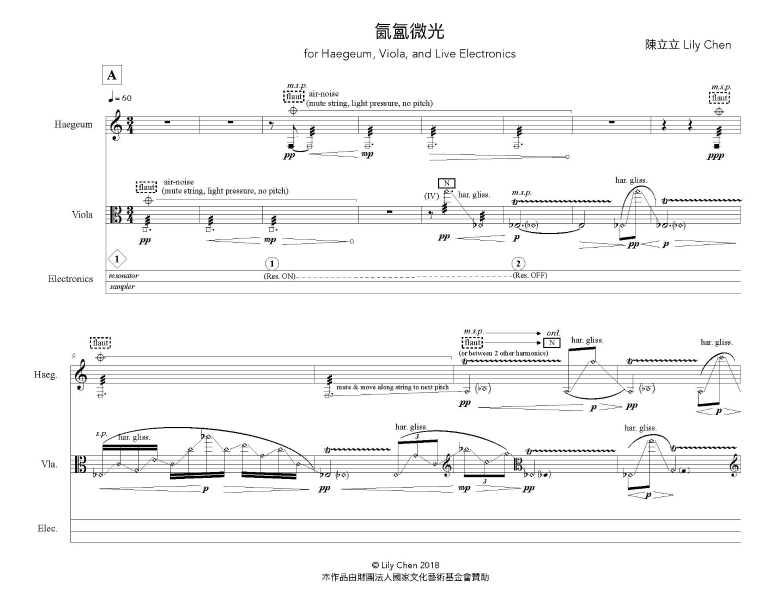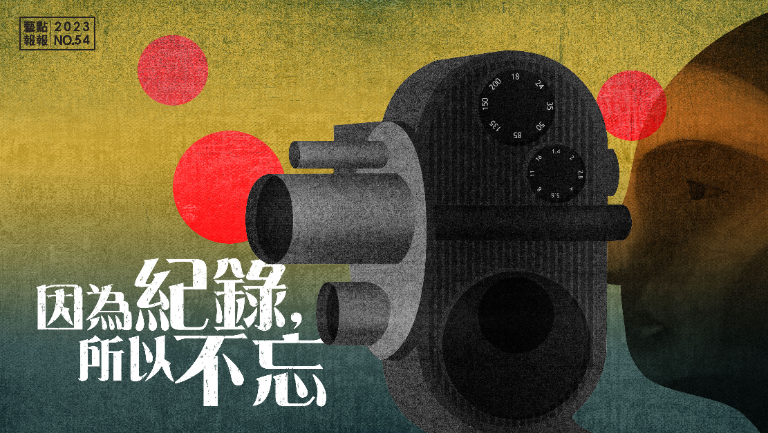The new digital age, which has evolved in response to the technological era, has also transformed the way composers create music or the way they produce music. Composers' use of various digital audio technologies gives the listener a new music appreciation experience, and the new timbres produced by these electronic sounds also allow composers more room for creative development, breaking away from the old sound structure and implying infinite possibilities for the expansion of each kind of timbre.
An interesting finding from NCAF's regular creative projects in the music category in recent years is that the number of works containing electroacoustic music has been springing up like mushrooms over the years.
The inspiration for Ying-Ting Lin's Pan-sian comes from the music of immortal plays, Taiwanese traditional folk music performed to celebrate the birthday of the chief deity, Wenfu Qiansui, at Donglong Temple in Donggang Township, Pingtung County. The design comprises a soprano saxophone riff and a real-time interactive electronic sound. The suona riff from the immortal play ensemble is mimicked through a slightly delayed effect of the electronic sound. The content of the work shows that the composer tried to present the deeper meaning of traditional music vividly through modern musical creation.
Fang-Wei Luo, the composer of Songs Of Desolation, used an excerpt from Chen Li's poem Listening to Winterreise Late at Night as an idea to compose this piece, incorporating the concept of "Song Without Words". This piece is full of monologues and uses a lot of susurration, vocal resonation, guttural sounds, and whistling. Electronic sounds serve to produce emphasis and amplification, expressing subtle changes in the susurration. The acoustic guitar is used here as accompaniment and the special sounds produced by extended techniques complement or blend with the vocals, perfectly conveying the extremely suppressed emotions. Slowly, listeners are enthralled by the sound, their moods carried away in the process.
If we try to savor and understand the content of these works, we will discover the essence of their spiritual and artistic beauty.
Further reading and related websites:
- Don't See the Demon, Hear the Demon—the Rise of Illusory: Interview with Ling-Zi Li, a Rising Sound Creator.
https://mag.clab.org.tw/interview-with-sound-artist-lee-ling-zi/ - Heard It in the Signals: The Sound Impressions of Ping-Sheng Wu and Tsung-Yun Lai, NCAF Online Magazine
https://mag.ncafroc.org.tw/article_detail.html?id=297ef7227039739d01705b96e27b0006 - Soundscape II, NCAF Online Magazine
https://mag.ncafroc.org.tw/magazine_content.html?id=297ef7226f791cf2016f88811f200008 - Sound Machine: Po-Hao Chi's Song of Forgotten Words and Song of Distances, Taishin Arts Review
https://talks.taishinart.org.tw/juries/cwc/2019050801
*Translator: Linguitronics
